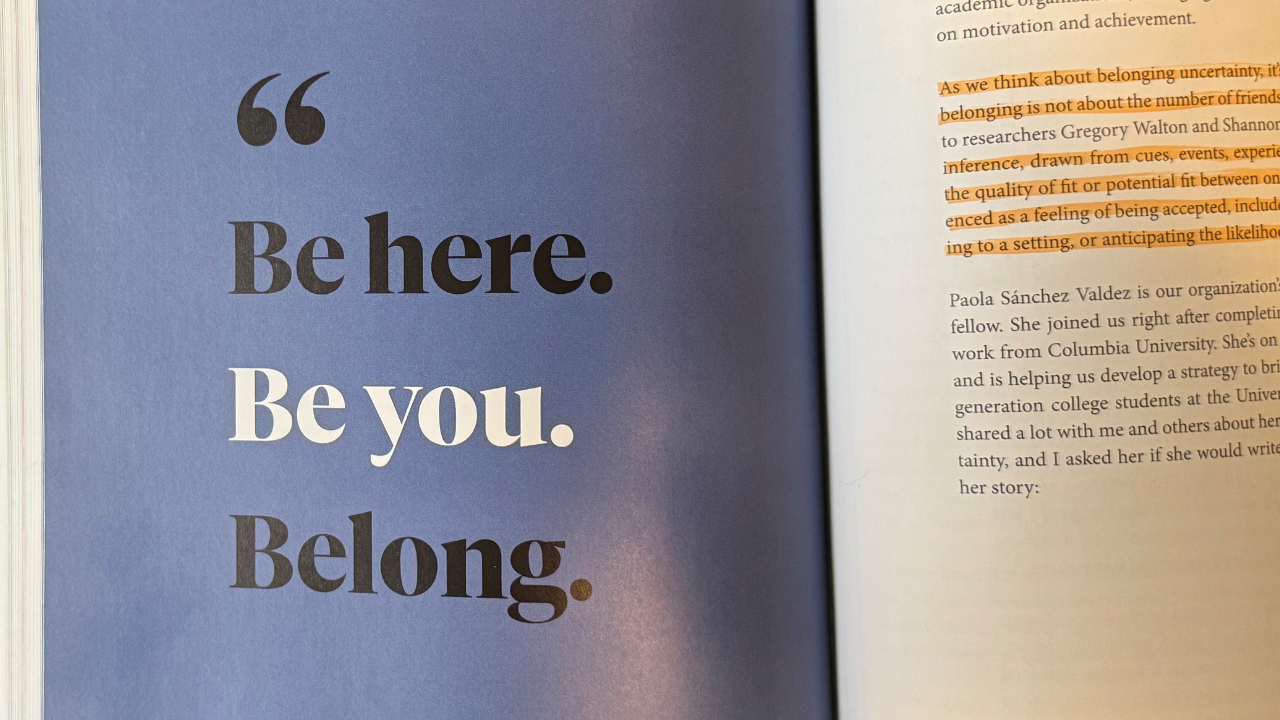"Be here. Be you. Belong."
Apr 27, 2025
[Note: this post was originally published on Substack July 17, 2023]
An ongoing journey
This has been a really hard post to write. It wasn’t your typical writer’s block conundrum of “what do I write?” I knew exactly what I wanted to write about. I’ve known it for over a month. My challenge was, “I know the negative side of this subject very well, but as a coach, I want to talk about shifting that narrative. How do I do that?” So I stewed and contemplated and sometimes thought I had it, then realized, no, that wasn’t it. I think I have it now, but it’s still a bit of a guess.
So what subject has me so turned around? Belonging, or, as I have been more familiar with in my life experience, being an outsider, not belonging. Brené Brown had a lot to say about both Belonging and it’s false friend, Fitting In, in her book Atlas of the Heart. You should go get the book, if only for this chapter, but here’s the gist (and this isn’t a paid ad, I just really love this book!):
-
“We have to belong to ourselves as much as we need to belong to others. Any belonging that asks us to betray ourselves is not true belonging.” (p. 154)
-
“Love and belonging are irreducible needs for all people. In the absence of these experiences, there is always suffering.” (p. 154)
-
“True belonging is the spiritual practice of believing in and belonging to yourself so deeply that you can share the most authentic self with the world and find sacredness in both being a part of something and standing alone in the wilderness. True belonging doesn’t require you to change who you are; it requires you to be who you are.” (p. 158)
-
“Our yearning for belonging is so hardwired that we often try to acquire it by any means possible, including trying to fit in and hustling for approval and acceptance.” (p. 158)
I loved how the first three quotes sounded when I read them. They sounded right to my rational mind, but I didn’t really have an emotional reaction to them other than, “ooh, that’s good!”
The one that got me, that really resonated and knocked around in my heart, was the fourth one.
When you grow up knowing you’re an outsider, knowing you don’t belong, it’s hard. As a young child, we don’t have the knowledge or language to be able to express what we’re feeling very well. We just know what feels bad and do what we can to make it not feel as bad, until we feel better or we disassociate and numb ourselves to the pain.
There were so many ways I knew I didn’t fit in. I knew my family was “weird” because:
-
Mom worked full time at a time when many mothers still stayed at home or only worked part time, and my Dad often wasn’t working (though he was fully capable)
-
I was an only child
-
We didn’t have a nice house and newer cars
-
We moved a lot, so I was often a new kid in school
-
Many times, I didn’t have the brand name clothes or other hot and “in” accessories others at school did
-
And, I was smart and really sensitive (not going to win any popularity contests with those traits!)
For all these things, and probably some others that have been lost to time, I was almost always an outsider. There were very few places where I found any true belonging. Mostly, I tried very hard to fit in wherever I found myself. I rarely succeeded for long.
At one point in her research, Brené Brown asked a large group of eighth graders to define the difference between belonging and fitting in. I think we can all agree that if anyone knows the difference, it’s tweens and teens. I’ve included an image of the illustration in the book because it speaks to these differences so much more eloquently than words alone can.
Are you working through work-life balance issues? Are you facing burnout?
Reach out for a free 1:1 coaching consultation.
Was this post shared with you?
Join our mailing list to receive the latest blog posts directly!
Your information will never be shared.
We hate SPAM. We will never sell your information, for any reason.


